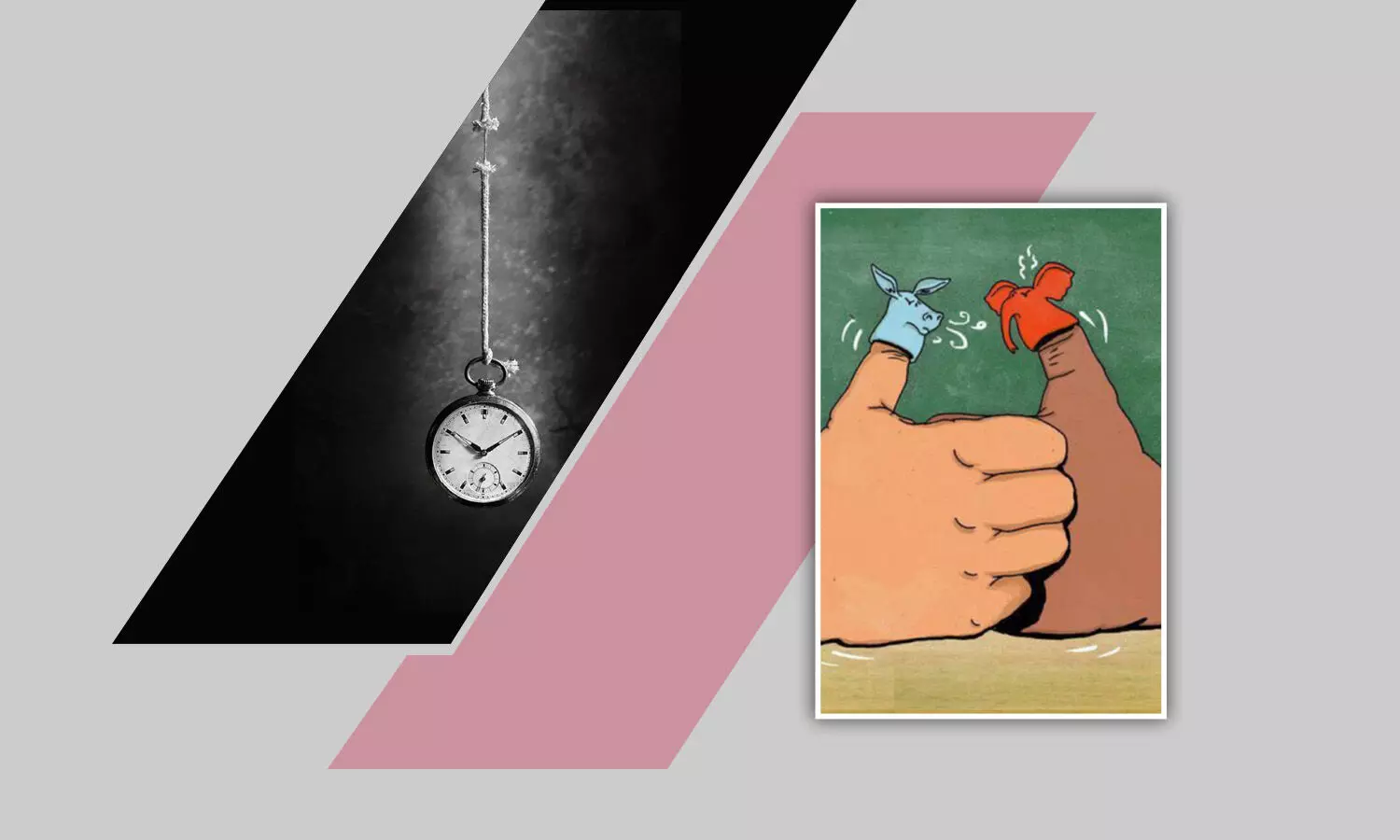- Home
- News
- Articles+
- Aerospace
- Artificial Intelligence
- Agriculture
- Alternate Dispute Resolution
- Arbitration & Mediation
- Banking and Finance
- Bankruptcy
- Book Review
- Bribery & Corruption
- Commercial Litigation
- Competition Law
- Conference Reports
- Consumer Products
- Contract
- Corporate Governance
- Corporate Law
- Covid-19
- Cryptocurrency
- Cybersecurity
- Data Protection
- Defence
- Digital Economy
- E-commerce
- Employment Law
- Energy and Natural Resources
- Entertainment and Sports Law
- Environmental Law
- Environmental, Social, and Governance
- Foreign Direct Investment
- Food and Beverage
- Gaming
- Health Care
- IBC Diaries
- In Focus
- Inclusion & Diversity
- Insurance Law
- Intellectual Property
- International Law
- IP & Tech Era
- Know the Law
- Labour Laws
- Law & Policy and Regulation
- Litigation
- Litigation Funding
- Manufacturing
- Mergers & Acquisitions
- NFTs
- Privacy
- Private Equity
- Project Finance
- Real Estate
- Risk and Compliance
- Student Corner
- Take On Board
- Tax
- Technology Media and Telecom
- Tributes
- Viewpoint
- Zoom In
- Law Firms
- In-House
- Rankings
- E-Magazine
- Legal Era TV
- Events
- Middle East
- Africa
- News
- Articles
- Aerospace
- Artificial Intelligence
- Agriculture
- Alternate Dispute Resolution
- Arbitration & Mediation
- Banking and Finance
- Bankruptcy
- Book Review
- Bribery & Corruption
- Commercial Litigation
- Competition Law
- Conference Reports
- Consumer Products
- Contract
- Corporate Governance
- Corporate Law
- Covid-19
- Cryptocurrency
- Cybersecurity
- Data Protection
- Defence
- Digital Economy
- E-commerce
- Employment Law
- Energy and Natural Resources
- Entertainment and Sports Law
- Environmental Law
- Environmental, Social, and Governance
- Foreign Direct Investment
- Food and Beverage
- Gaming
- Health Care
- IBC Diaries
- In Focus
- Inclusion & Diversity
- Insurance Law
- Intellectual Property
- International Law
- IP & Tech Era
- Know the Law
- Labour Laws
- Law & Policy and Regulation
- Litigation
- Litigation Funding
- Manufacturing
- Mergers & Acquisitions
- NFTs
- Privacy
- Private Equity
- Project Finance
- Real Estate
- Risk and Compliance
- Student Corner
- Take On Board
- Tax
- Technology Media and Telecom
- Tributes
- Viewpoint
- Zoom In
- Law Firms
- In-House
- Rankings
- E-Magazine
- Legal Era TV
- Events
- Middle East
- Africa

Patent Illegality, A Ground for Setting Aside an Arbitral Award
Patent Illegality, A Ground for Setting Aside an Arbitral Award

PATENT ILLEGALITY, A GROUND FOR SETTING ASIDE AN ARBITRAL AWARD In a recent judgment the Supreme Court has in State of Chhattisgarh & Anr versus M/s. Udyog Private Limited examined the scope of patent illegality subsequent to the 2015 Amendment Under the Arbitration and Conciliation Act, 1996 ("Act") a party who wishes to set aside an arbitration award may do so by filing an...
To Read the Full Story, Subscribe to Legal Era News
Access Exclusive Legal Era Stories, Editorial Insights, and Expert Opinion.
Already a subscriber? Sign in Now
PATENT ILLEGALITY, A GROUND FOR SETTING ASIDE AN ARBITRAL AWARD
In a recent judgment the Supreme Court has in State of Chhattisgarh & Anr versus M/s. Udyog Private Limited examined the scope of patent illegality subsequent to the 2015 Amendment
Under the Arbitration and Conciliation Act, 1996 ("Act") a party who wishes to set aside an arbitration award may do so by filing an application under Section 34 of the Act. Section 34 of the Act has undergone significant changes pursuant to the 2015 amendment to the Act (2015 Amendment"), the Government recognized and has kept in mind the two vital aspects; i.e. party autonomy and finality of awards, to ensure minimal judicial interference with arbitral awards and arbitration proceedings, while making changes to Section 34 of the Act. In a recent judgment the Supreme Court has in State of Chhattisgarh & Anr versus M/s. Udyog Private Limited examined the scope of patent illegality subsequent to the 2015 Amendment.

Facts of the case
On 30th August, 1979, the State of Madhya Pradesh had entered into an agreement with the Respondent-Company for supply of 10,000 tons of Sal seeds per annum for a period of 12 years. In the year 1987, Government of Madhya Pradesh annulled all agreements relating to forest produce and enacted a legislation. The Act was notified on 1st January, 1997. In the absence of any Notification of the said enactment, the agreement between the State of Madhya Pradesh and the Respondent-Company was renewed on 30th April, 1992 and was valid till 29th April, 2004. Under the renewed Agreement, the State of Madhya Pradesh agreed to supply 10,000 tons of Sal seeds to the Respondent-Company. When the Act was finally notified, by virtue of Section 5A, State of Madhya Pradesh terminated the Agreement dated 30th April, 1992, on 21st December, 1998.
Aggrieved by the said termination, the Respondent-Company on 6th December, 1999 invoked Arbitration and raised certain disputes, including a claim for refund of a sum of 1,72,17,613/- on the ground that the said amount had been paid in excess to the State of Madhya Pradesh for the supply of Sal seeds during the period between 1981-82 to 31st December, 1998. A Sole Arbitrator was appointed under section 11(6) by the High Court of Chhattisgarh at Bilaspur vide a consent order dated 21st March, 2002.
Vide Arbitral Award dated 17.02.2005, the claim of the Respondent- Company was allowed and a sum of 7,43,46,772/- was awarded included interest @ 18% per annum up to February 2005 along with future interest @ 18% per annum payable with effect from 1st March, 2005. Aggrieved by the Award, the Appellant-State filed a petition under Section 34 of the 1996 Act before the District Judge, Raipur. Vide order dated 14th March, 2006, the learned District Judge declined to interfere with the Award except for modification to the extent of the interest awarded in favor of the Respondent-Company. The Appellant-State assailed the order dated 14th March, 2006 by preferring an appeal under Section 37 of the 1996 Act. The Respondent-Company also filed a Cross Appeal being aggrieved by the modification of the Award. Aggrieved by a common judgment dated 21st October 2009, the Appellant-State preferred Civil Appeal before the Supreme Court. By an order dated 30th April 2010, leave was granted by the SC, limited to the issue of disallowance of supervision charges under the award which according to the Appellant-State was liable to be borne by the Respondent-Company.
Arguments before the Court
Appellant-State contended that a perusal of the terms and conditions of the Agreement make it apparent that the parties had agreed that the expenses incurred every year by the State Government for supplying Sal seeds to the Respondent-Company would not only include the cost of collection, purchase price paid to the growers and Commission Agents, cost of storage and transportation, but also include handling and supervision charges. It was canvassed that 'supervision charges' have been clearly referred to in Clause 6(b) of the Agreement and is the subject matter of a Circular dated 27th July, 1987 issued by the State Government. Levy of 'supervision charges' had also been intimated to the Respondent-Company at the time of seeking advance payment and it did not raise any objection to paying the same.
The Respondent-Company argued that the Appellant-State having failed to raise any objection relating to deduction of 'supervision charges' in its Section 34 petition, it must be assumed that it had waived its right to take any such plea in the Section 37 petition filed in the High Court and for that matter, before SC.
Issue Before the Court
Whether the Ld. Arbitrator has ignored the binding terms of the contract governing the parties?
Observations of the Courts
The Supreme Court observed that the Appellant-State did raise an objection before the Arbitral Tribunal on the claim of the Respondent-Company seeking deduction of supervision charges, for which it relied on Clause 6(b) of the Agreement and the Circular dated 27th July, 1987 to assert that recovery of supervision charges along with expenses was a part and parcel of the contract the said objection was turned down by the learned Sole Arbitrator by giving a complete go by to the terms and conditions of the Agreement governing the parties and observing that there is no basis to admit any such "indirect expenses". Pertinently, the Respondent-Company has not denied the fact that supervision charges were being levied by the Appellant-State and being paid by it without any demur as a part of the advance payment made on an annual basis, right from the date the parties had entered into the first agreement. The Court opined that this is the "patent" illegality that is manifest on the face of the Arbitral Award inasmuch as the express terms and conditions of the Agreement governing the parties as also the Circular dated 27th July, 1987 issued by the Government of Madhya Pradesh have been completely ignored.
The Court observed that although an additional ground is now available under sub-section (2-A), added by the Amendment Act, 2015, to Section 34, the law on interference in matters of Awards under the 1996 Act has been circumscribed with the object of minimizing interference by courts in arbitration matters and one of the grounds on which an Award may be set aside is "patent illegality". The Court held that the High Court ought have interfered by resorting to Section 34(2A) of the 1996 Act, which empowers the Court to set aside an award if it finds that the same is vitiated by "patent illegality" appearing on the face of the same, once such a ground has been taken in Section 37 petition.
In Associate Builders v. Delhi Development Authority (2015) 3 SCC 49 the Hon'ble SC has broadly examined the grounds of "patent illegality" that broadly in the following words:-
(a) A contravention of the substantive law of India;
(b) The illegality must go to the root of the matter and cannot be of a trivial nature;
(c) The Arbitral Tribunal shall decide the dispute in accorded with the substantive law for the time being in force in India.
(d) A contravention of the Arbitration Act itself would be regarded as a patent illegality.
In Ssangyong Engineering and Construction Company Limited v. National Highways Authority of India (NHAI) (2019) 15 SCC 131, the Hon'ble SC spelt out the contours of the limited scope of judicial interference in reviewing the domestic Arbitral Awards under the 1996 Act. The Court observed that there must be patent illegality appearing on the face of the award, which goes to the root of the matter but which does not amount to mere erroneous application of the law.
In the case of Delhi Airport Metro Express Pvt. Ltd. v. Delhi Metro Rail Corporation Ltd 5 2021 SCC Online SC 695, the Court held that the permissible grounds for interference with a domestic award under Section 34(2-A) on the ground of patent illegality is when the arbitrator takes a view which is not even a possible one, or interprets a clause in the contract in such a manner which no fair-minded or reasonable person would, or if the arbitrator commits an error of jurisdiction by wandering outside the contract and dealing with matters not allotted to them.
The Court emphasized on the expression "the Courts find that" applied in Section 34(2)(b) of the 1996 Act, which empowers the Court to grant leave to amend the Section 34 application if the circumstances of the case so warrant and it is required in the interest of justice as held in the case of Lion Engineering Consultants v. State of Madhya Pradesh and Others (2018) 16 SCC 758.
Disclaimer – The views expressed in this article are the personal views of the author and are purely informative in nature.


